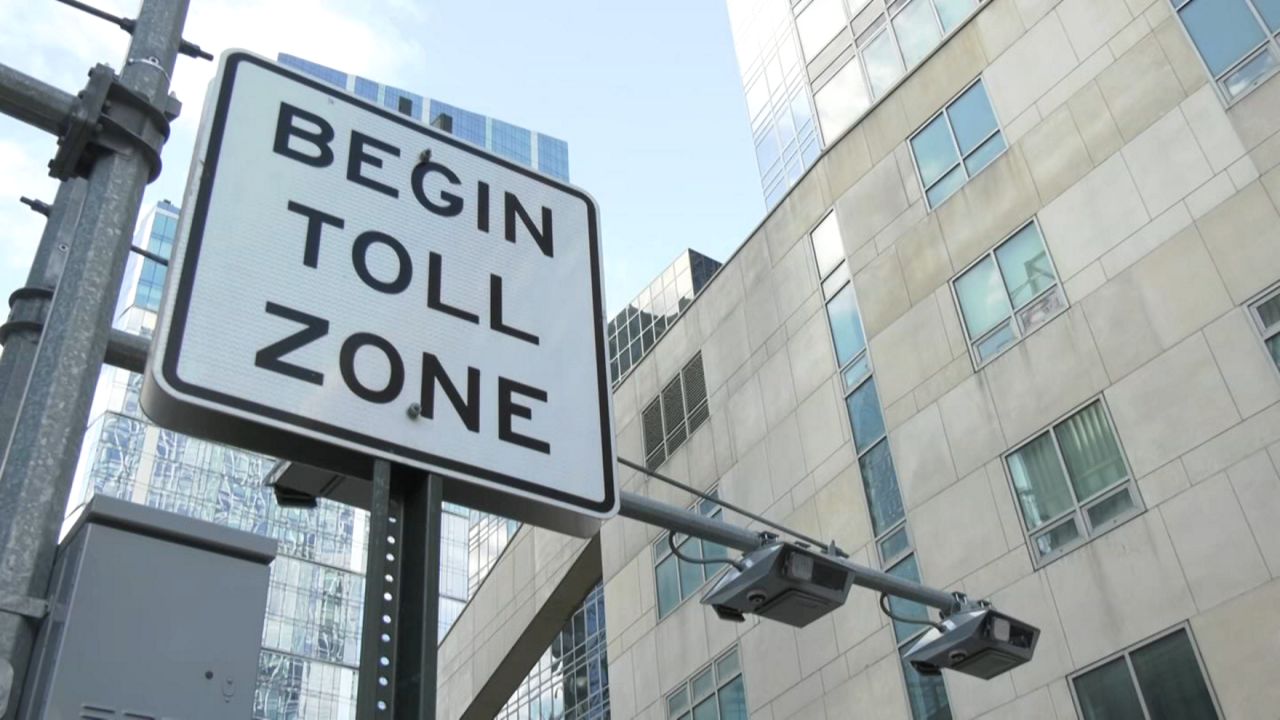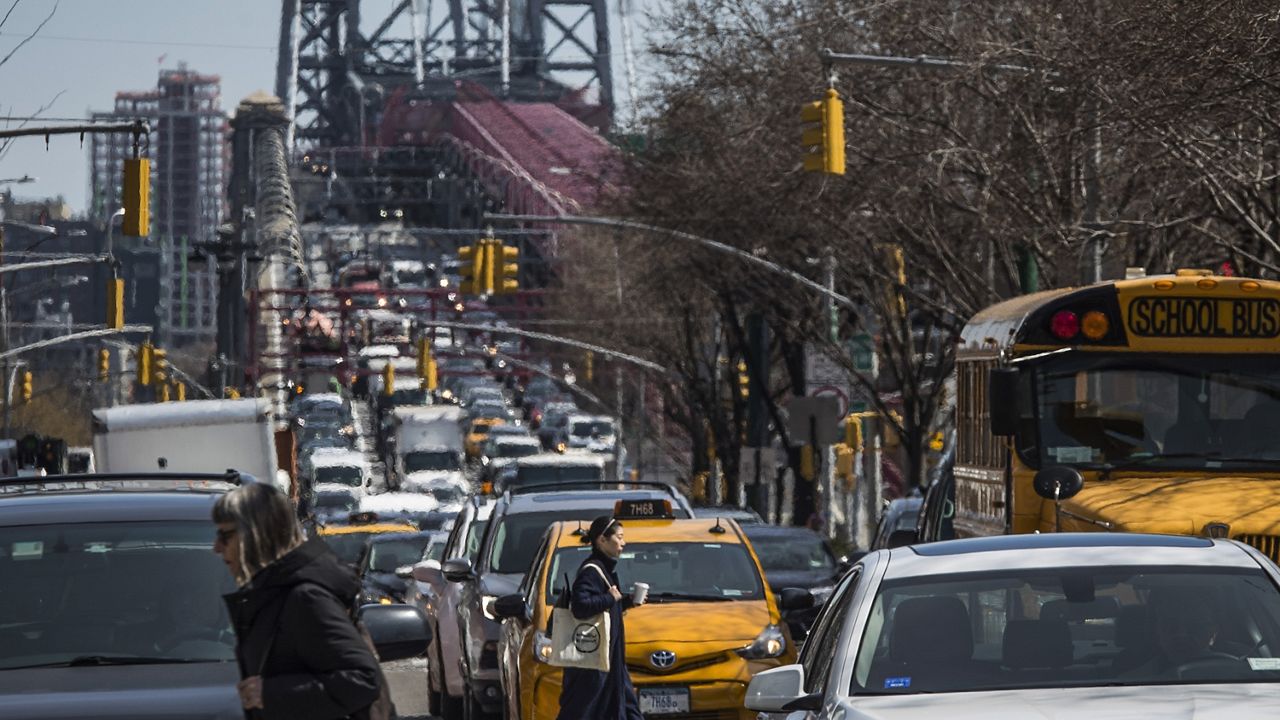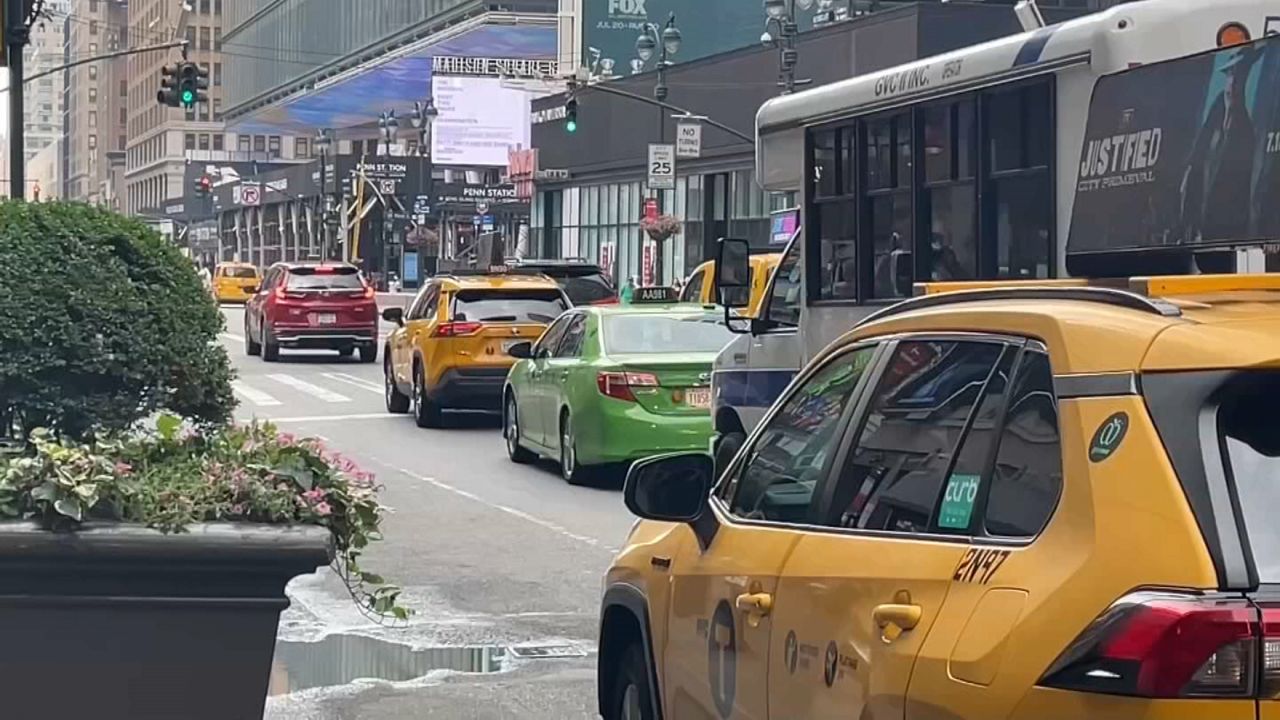At its first meeting since Gov. Kathy Hochul indefinitely halted the rollout of congestion pricing, the full MTA board unveiled a plan to defer around $16.5 billion in work out of the transit agency’s $55 billion capital program.
The plan will affect some ADA accessibility projects, including elevator installation at 23 subway stations, which has been postponed until further notice. Construction on the second phase of the Second Avenue subway expansion, which would bring it up to 125th Street, has also been halted, MTA officials said earlier this month.
What You Need To Know
- The full MTA board on Wednesday unveiled a plan to defer around $16.5 billion in work out of the transit agency’s $55 billion capital program
- The plan will affect some ADA accessibility projects, as well as construction on the second phase of the Second Avenue subway expansion, which has been halted. The MTA will also no longer purchase 250 electric buses
- The board also voted 10-1 to pass a resolution officially acknowledging Hochul’s decision to pause the rollout of congestion pricing
The MTA will also no longer be purchasing 250 electric buses, the board’s plan showed.
The MTA board on Wednesday also voted 10-1 to pass a resolution officially acknowledging Hochul’s decision to pause the rollout of congestion pricing.
As part of the vote, the panel agreed to delay the start of the program until the state Department of Transportation provides the sign-off that Hochul asked it to withhold.
With $27 billion in funding already committed and only $12 billion remaining in the MTA’s capital plan, the agency will now focus on state of good repair projects, including purchasing new subway cars and railroad trains to replace the least reliable ones and carrying out track, station and signal maintenance.
“We’re talking about track, we’re talking about the elevated structures, the tunnels, the power system, state of good repair to keep, literally keep the service going,” Tim Mulligan, deputy chief development officer for the MTA, said.
About 140 people signed up to speak at Wednesday’s meeting, many of whom urged the board to push back on Hochul’s congestion pricing decision.
“If the governor goes through with this, she should be prepared for lawsuits on June 30. This board has a fiduciary duty to enact this program and we urge you to speak out against the governor’s pause,” Elizabeth Adams, with the advocacy group Transportation Alternatives, said.
MTA Chair and CEO Janno Lieber, however, made it clear that despite the MTA board’s fiduciary obligations, which many speakers mentioned, the transit agency does not have the power to proceed with the tolling program.
"Here's what we can do: We can pivot and work to protect the short- and long-term interests of the MTA and of transit riders,” Lieber said. “Governor Hochul has said that she is working to secure funding. We have to work with her, the Assembly and the Senate and with everyone to make sure that that does in fact happen."
In a statement released Wednesday afternoon, the governor her team would “work with the MTA to further develop a comprehensive approach to fund both the remaining projects in the 2020-2024 capital plan and the [2025-2029] capital plan.”
“While the timing of the next budget may necessitate temporary adjustments to the timeline of certain contracts, there is no reason for New Yorkers to be concerned that any planned projects will not be delivered,” Hochul said in part. “In the interim, the MTA has committed to direct all available resources to ensure the system remains in a state of good repair and continue to advance priority projects, and prepare to activate new contracts immediately following the designation of new revenue sources in next year's budget.”
The MTA’s congestion pricing plan would have charged drivers entering Manhattan south of 60th Street a base fare of $15 in an effort to reduce traffic congestion, encourage public transit use and raise funds for the MTA’s capital plan.
It had been set to take effect on June 30 and was expected to raise $1 billion annually for MTA improvements.
Hochul has repeatedly said her decision to pause the rollout of the program was due to fears the fee would put an undue economic burden on struggling New Yorkers.







_ES_Congestion_Pricing_Flaws_Presser_CLEAN_132774690_1428)

